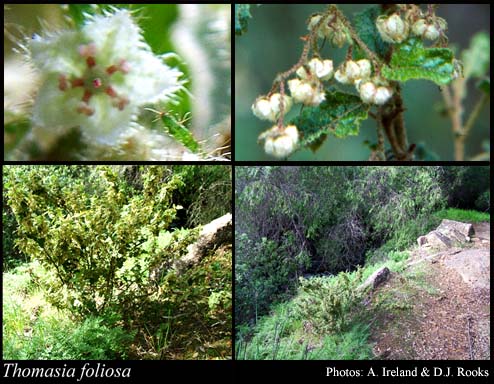- Reference
- Mém.Mus.Hist.Nat. 7:454 (1821)
- Conservation Code
- Not threatened
- Naturalised Status
- Native to Western Australia
- Name Status
- Current
Multi-stemmed shrub, 0.2-1(-2) m high. Fl. white/pink-purple, May to Nov. Usually lateritic gravelly or granitic soils.







Scientific Description
Shrub, with hairy stems. Leaves 10-45 mm long, 7-35 mm wide, not lobed or tripartitely lobed, simply (once-)lobed; margins crenate; hairy, with stellate hairswith scales absent, Sessile glands absent; stipules present but early deciduous (only visible on youngest leaves), 3-10 mm long. Perianth of two whorls but the corolla reduced to small scales or tiny lobes at the base of the ovary or of one whorl only (the visible whorl is a calyx, sometimes petaloid) (by misinterpretation). Pedicel present, 2.5-3.7 mm long; indumentum present, with stellate hairs present, with scales absent. Epicalyx (extra segments or 'bracteoles' immediately below the calyx) present, 2.8-3 mm long, the lobes free, indumentum present, stellate hairs presentwith scales absent, Sessile glands absent. Calyx pink or white, 3.6-6 mm long, the lobes fused less than half their length, Sessile glands absent, simple hairs (without tubercle bases) absent, stellate hairs present, tubercle-based simple hairs absent, gland-tipped hairs absent, scales scales present, Terminal appendages absent, number of ribs present, one. Corolla glabrous. Indumentum (outside) Sessile glands absent. Stamens five, free and inserted at the base of the ovary; filaments present, 0.8-1.3 mm long; anthers 1.2-2.5 mm long, indumentum absent (anthers glabrous). Staminodes absent, appendages absent. Ovary hairs or scales present, simple hairs absent, stellate hairs present, gland-tipped hairs absent; style 1, with a lobed or capitate stigma, 4.2-6 mm long, with one style branches or lobes, mostly glabrous, wing absent. Flowering time May, June, July, August, September, October or November. Distribution Botanical Province South-West, IBRA Bioregion Geraldton Sandplains, Swan Coastal Plain, Avon Wheatbelt, Jarrah Forest, Mallee, Warren and Esperance.
Distribution
- IBRA Regions
- Avon Wheatbelt, Esperance Plains, Geraldton Sandplains, Jarrah Forest, Mallee, Swan Coastal Plain, Warren.
- IBRA Subregions
- Dandaragan Plateau, Eastern Mallee, Fitzgerald, Katanning, Lesueur Sandplain, Merredin, Northern Jarrah Forest, Perth, Recherche, Southern Jarrah Forest, Warren, Western Mallee.
- IMCRA Regions
- Central West Coast, Leeuwin-Naturaliste.
- Local Government Areas (LGAs)
- Albany, Armadale, Augusta Margaret River, Beverley, Boddington, Boyup Brook, Bridgetown-Greenbushes, Brookton, Broomehill-Tambellup, Bruce Rock, Busselton, Cambridge, Chittering, Collie, Cranbrook, Cuballing, Dandaragan, Denmark, Dowerin, Dumbleyung, Esperance, Gingin, Gnowangerup, Gosnells, Jerramungup, Kalamunda, Kellerberrin, Kojonup, Lake Grace, Manjimup, Mingenew, Mundaring, Murray, Narrogin, Northam, Perth, Pingelly, Plantagenet, Ravensthorpe, Serpentine-Jarrahdale, Swan, Three Springs, Toodyay, Victoria Plains, Wandering, Waroona, West Arthur, Wickepin, Williams, Wongan-Ballidu, Yilgarn, York.